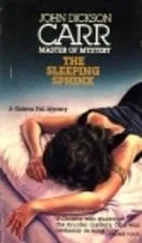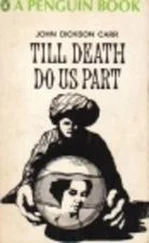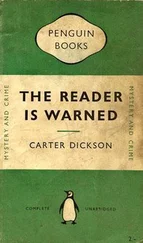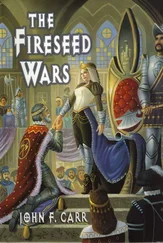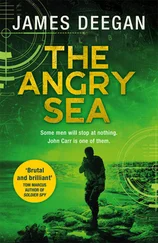'But most of these remarks are contained in the statement he made to Divisional Detective-Inspector Mottram at 12.15 a.m. on January 5th. The prisoner accompanied Inspector Mottram and Sergeant Raye to Dover Street, where he voluntarily made the statement which I now propose to read to you. He said:
'I make this statement voluntarily and of my own free will, having been told that anything I say will be taken down in writing and may be used as evidence.
'I wish to clear myself. I am absolutely innocent. I arrived in London at 10.45 this morning. The deceased knew I was coining, since my fiancée had written to him saying that I would take the nine o'clock train from Frawnend, in Sussex. At 1.30 Mr Hume rang me up on the telephone, and asked me to come to his house at six o'clock. He said he wished to settle matters concerning his daughter. I went to his house at 6.10. He greeted me with complete friendliness. We spent a few minutes talking about archery, and I then noticed the three arrows hanging on the wall. He said that you could kill a man with one of those arrows. I said, meaning it as a joke, that I had not come there to kill anybody unless it became absolutely necessary. At this time I am certain that the door was not bolted, and I did not have any kind of weapon on my person.
'I told him I wished to marry Miss Hume, and asked his consent. He asked me if I would have a drink, and I said I would. He poured out two glasses of whisky and soda, giving me one and taking the other himself. Then he said that he would drink my health, and he gave his full consent to my marriage with Miss Hume.'
Sir Walter lifted his eyes from the paper. For what seemed a long time he remained looking steadily at the jury. We could not see his face; but the back of his wig was eloquent.
'The Crown will indeed ask you to believe that the deceased invited him there to "settle matters concerning his daughter". You will have to decide whether you think this statement reasonable, or probable, on the face of it. He goes there, they fall to talking of archery as soon as the prisoner enters the room, and Mr Hume in the friendliest possible manner announces that you could kill a man with one of those arrows. You may think this extraordinary conduct, although it allows the prisoner to make his joke about murder. You may think it still more extraordinary that the deceased, having expressed before other witnesses such sentiments towards the prisoner as you will hear, should drink success to the prisoner and approval to the marriage. But what follows?
'I had drunk about half of the whisky and soda when I felt my head going round, and I knew I must be losing consciousness. I tried to speak, but could not. I knew a drug must have been put into that drink, but I felt myself falling forward, and the last thing I remember is Mr Hume saying: "What is wrong with you? Have you gone mad?"
'When I came to myself again I was sitting in the same chair, though I believe I had fallen out of it before. I felt ill. I looked at my watch, and saw it was half-past six. Then I noticed Mr Hume's foot on the other side of the desk. He was lying there dead, just as you saw him. I called to him to get up. I could not think what had happened. I went round the room, noticing that one of the arrows had been taken off the wall. I tried the door and found it was bolted on the inside. I also examined the shutters, and they were locked as well. It occurred to me that possibly I might be suspected of having killed him, so I went to look for the glasses of whisky that Mr Hume had poured out. I could not find them. The decanter of whisky was full again on the sideboard, and the syphon of soda did not seem to have been used. There were four clean glasses: but two of them may have been the glasses we used; I don't know.
'A short time after this I went over and looked at the door again. I then noticed that dust on my hand, as you called my attention to it later. I went back and looked at the arrow. While I was doing so, someone knocked at the door; and I saw there was nothing else to do, so I opened it. The big man you call Fleming came charging in, and the servant behind him carrying a poker, and Miss Jordan hanging about the doorway. That is all I can tell you. I never touched that arrow at any time.'
There was a rustle as Sir Walter flipped over the flimsy, typewritten sheets, and put them down. That rustle went through the court.
Leopard-Skin whispered: 'Why, he's as mad as a hatter.'
Plain-Face said: 'Do you really think so. darling? How terribly naive of you. That's what he wants them to think, I dare say.'
'Ss- t!'
'Members of the jury,' continued Sir Walter, spreading out his hands with a gesture of magnanimity and even perplexity, 'I shall not offer to comment on that statement, nor on such physical evidence as will be outlined by the witnesses and the police officers. What explanation can be made for these extraordinary statements, what interpretation will be placed on them by the prisoner or by my learned friend, it is not within my province to say. The contention of the Crown is that this man, finding in Avory Hume an angry, unexpected, and determined opposition to a cherished project, quarrelled with him and brutally killed an old man who had done him no harm.
'In conclusion, I need remind you only of this: The matter before you is to determine whether or not the evidence which the Crown will lay before you supports the charge of murder. That is your painful task, and your only task. If you think that the Crown have not proved their case beyond any reasonable doubt, you will have no hesitation in doing your duty. I tell you quite frankly that the Crown can supply no reason for the victim's sudden antagonism towards the prisoner. But that, I shall submit, is not the point at issue: The point at issue is what effect this antagonism had on the prisoner. The antagonism itself is a fact, and you may think a starting-point in the chain of facts we shall lay before you. If, therefore, you think that the case for the Crown has been fairly proved, you will not allow a weakness of character on the part of the prisoner to be turned into a strange link for his defence; and you must have no hesitation in condemning him to the extreme penalty of the law.'
2
'Look at Photograph Number 5'
THE Attorney-General sat down with some rustling, and a glass of water was handed up to him from the solicitors' table below. An officer of the court, who had been tiptoeing past the jury-box with his back bent down so as not to obscure the jury's view of counsel, straightened up. Mr Huntley Lawton, Sir Walter's junior, rose to his feet to examine the first witnesses.
The first two were official, and were speedily out of the box. Harry Martin Coombe, an official photographer, testified to certain photographs taken in connection with the crime. Lester George Franklin, surveyor to the Borough of Westminster, gave evidence as to his survey of the house, is Grosvenor Street, and produced plans of the house. Copies of all these were given to each member of the jury. Mr Huntley Lawton, whose manner had an innocent pomposity which seemed to go out into a beak of a nose, detained the latter witness.
'I believe that on January 5th, last, at the request of Detective-Inspector Mottram, you made an examination of the room called the study at Number is Grosvenor Street?’
‘I did.'
'Did you find any means of entrance or exit in that room except the door and the windows? That is to say, was there anything in the nature of a hidden entrance?'
'There was not.'
The walls were, in fact, homogeneous?' Silence.
The little judge looked round slightly. 'Counsel asks you,' said Mr Justice Rankin, 'whether there were any holes in the walls.' It was a soft, even voice: and you awoke to several things. You suddenly became aware of a sort of concentrated common sense, whittling down all things to their real values. You also became aware of absolute mastery, which the whole court felt. The judge, sitting perched out on the edge of his tall chair, kept his head round until the witness said: 'Holes, my lord? No holes'; then he blinked at Mr Lawton with some curiosity; and then the pen in his plump hand continued to travel steadily over his notebook.
Читать дальше

